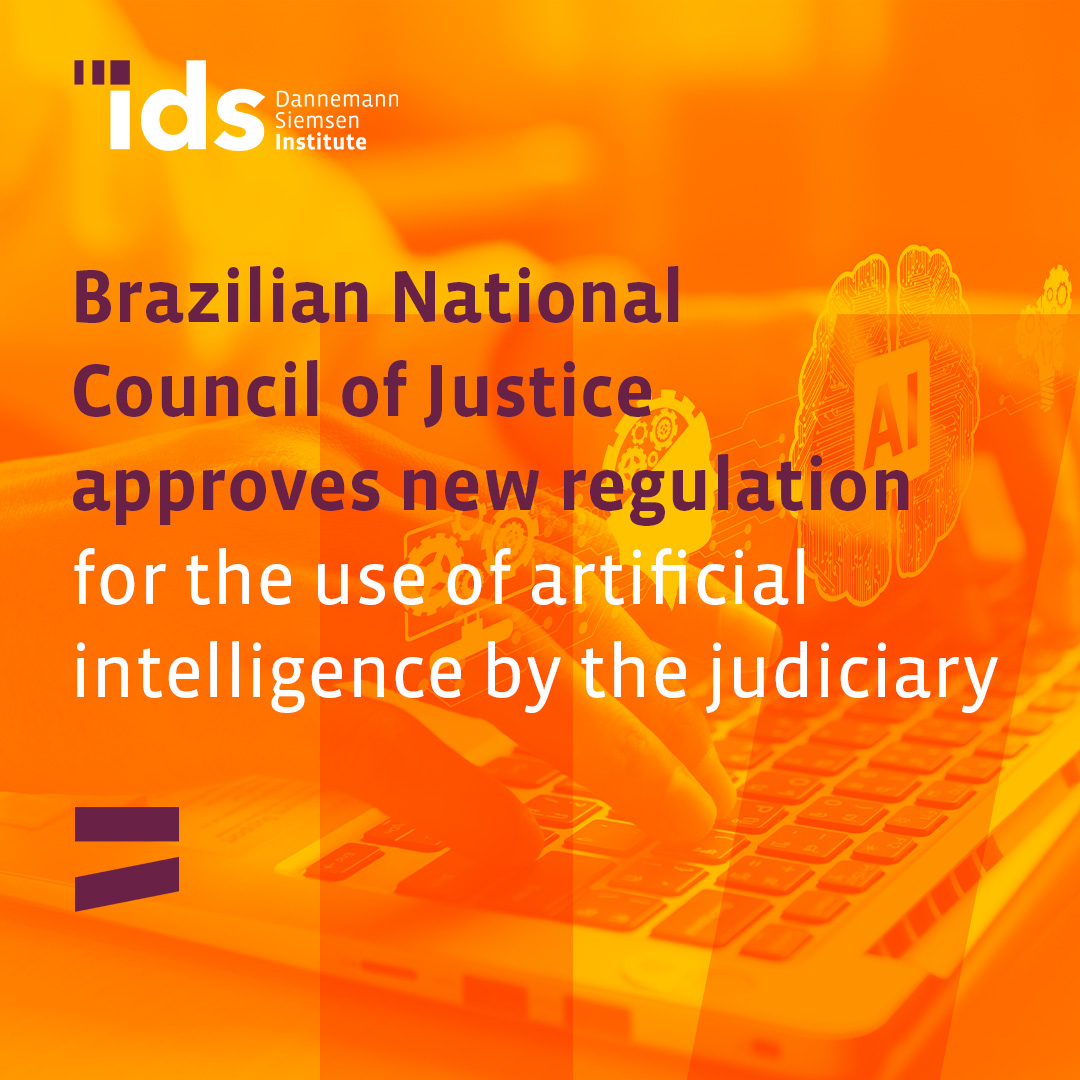06 de março de 2025
Share
Brazilian National Council of Justice approves new regulation for the use of artificial intelligence by the judiciary
On February 18, the Brazilian National Council of Justice (CNJ) approved Normative Act 0000563-47.2025.2.00.0000, which replaces Resolution 332/2020 and defines new rules for the use of artificial intelligence (AI) in the Judiciary. Among the main changes are specific guidelines for generative AI, with the aim of ensuring transparency, safety and governance in the application of these technologies. The measure seeks to reconcile innovation and the protection of fundamental rights and will come into force 120 days after its publication. Among the points regulated are the requirement for human supervision, auditing, transparency and restrictions to avoid discrimination and automated decisions without judicial control.
In chapter I, the regulation presents the fundamental definitions for the use of AI in the judiciary, such as the requirement for human supervision over all judicial decisions using artificial intelligence. Judges will be able to use the systems as support, but the final decision will remain their responsibility. To ensure the correct use of these technologies, courts and judicial schools will offer regular training for judges and civil servants, enabling them to deal with the challenges and risks of automation. The Resolution also reinforces the protection of sensitive information, adopting the principles of privacy by design (with anonymization and encryption) and privacy by default.
Chapter II reinforces the need for continuous auditing and monitoring, ensuring that the systems used are assessed for compliance with ethical, legal and safety principles. Chapter III deals with the categorization of risks, determining that AI solutions will be classified between high and low risk, with periodic audits for those that could impact fundamental rights. The regulation also establishes express restrictions on the use of AI, including the use of artificial intelligence to predict crimes based on personal or behavioral characteristics, as well as to classify citizens according to their social or emotional condition as a criterion for judicial decisions. The use of facial recognition to detect emotions has also been banned, given the risk of discrimination and violation of privacy.
The governance and supervision of AI solutions is covered in Chapter IV, which establishes parameters for transparency, interoperability between systems and the protection of personal data. The National Judicial Artificial Intelligence Committee, created by Chapter V of the Resolution, will be responsible for overseeing the implementation of the rules and defining criteria for monitoring AI solutions. The board will include judges, civil servants, members of the Public Prosecutor’s Office, the Public Defender’s Office, the Brazilian Bar Association (OAB) and experts in the field.
The Resolution also deals with guidelines for generative AI, registration and auditing of the solutions used, quality and safety standards, user control over automated decisions and incentives for research and development in the Judiciary. In this way, the CNJ seeks to balance innovation and legal certainty, allowing artificial intelligence to be used to speed up processes without compromising fundamental rights. Finally, the rule provides for a risk classification system, which will determine the level of supervision according to the potential impact of the technology employed.
The document can be accessed via the link: Resolution
Note: For quick release, this English version is provided by automated translation without human review.
